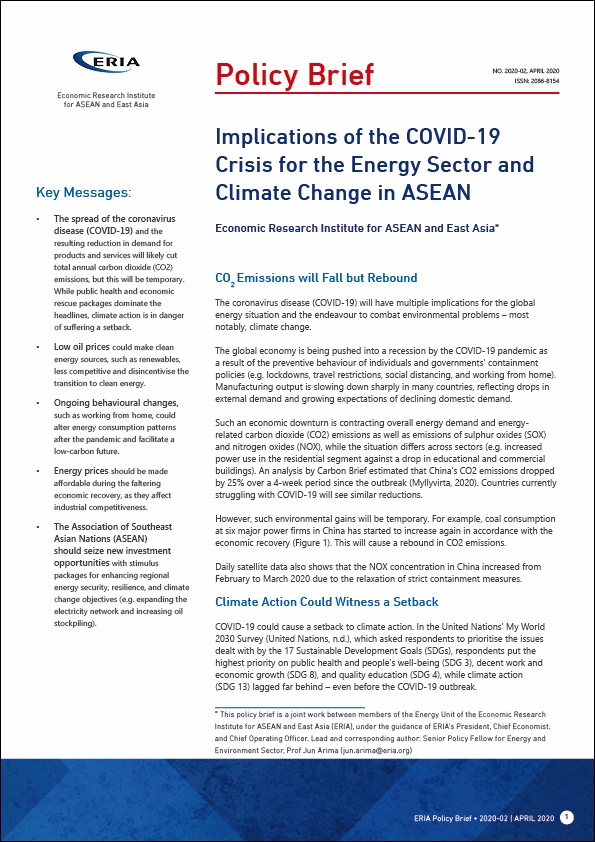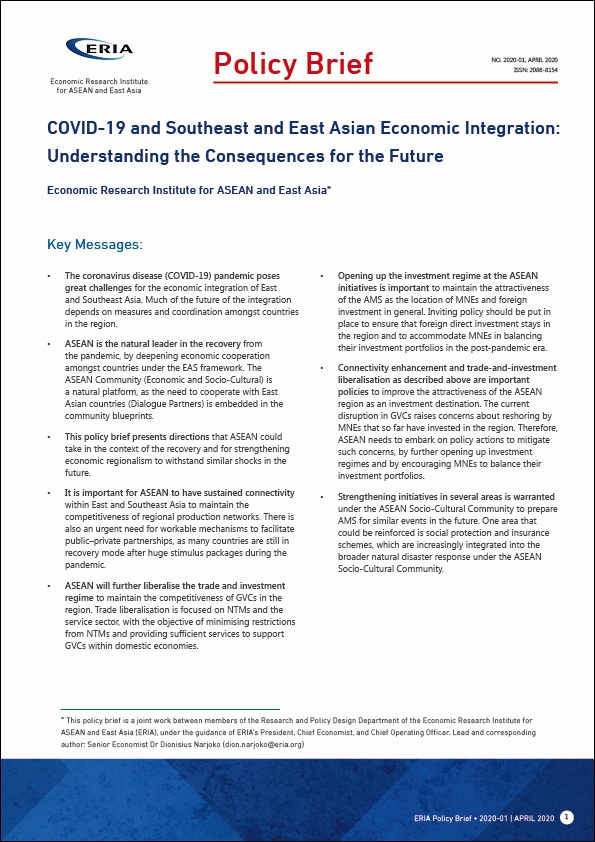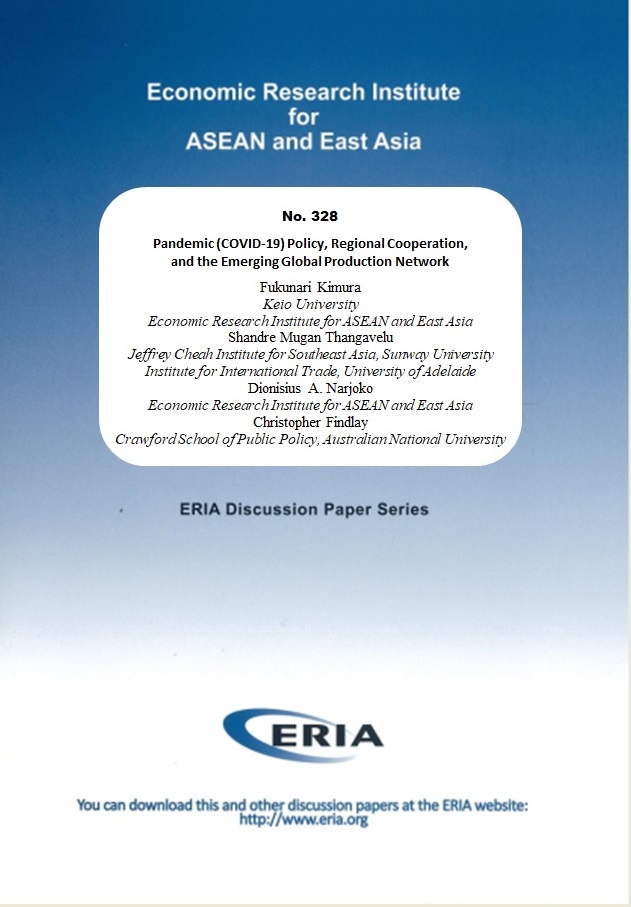Implications of the COVID-19 Crisis for the Energy Sector and Climate Change in ASEAN

Date:
22 April 2020Category:
COVID-19, Energy, Environment and Climate ChangeType:
Policy BriefsTags:
COVID-19, ASEAN, disaster risk managementPrint Article:
Key Messages
- The spread of the coronavirus disease (COVID-19) and the resulting reduction in demand for products and services will likely cut total annual carbon dioxide (CO2) emissions, but this will be temporary. While public health and economic rescue packages dominate the headlines, climate action is in danger of suffering a setback.
- Low oil prices could make clean energy sources, such as renewables, less competitive and disincentivise the transition to clean energy.
- Ongoing behavioural changes, such as working from home, could alter energy consumption patterns after the pandemic and facilitate a low-carbon future.
- Energy prices should be made affordable during the faltering economic recovery, as they affect industrial competitiveness.
- The Association of Southeast Asian Nations (ASEAN) should seize new investment opportunities with stimulus packages for enhancing regional energy security, resilience, and climate change objectives (e.g. expanding the electricity network and increasing oil stockpiling).
Preface
Policy Briefs
Implications of the COVID-19 Crisis on the Energy Sector and Climate Change in ASEAN




